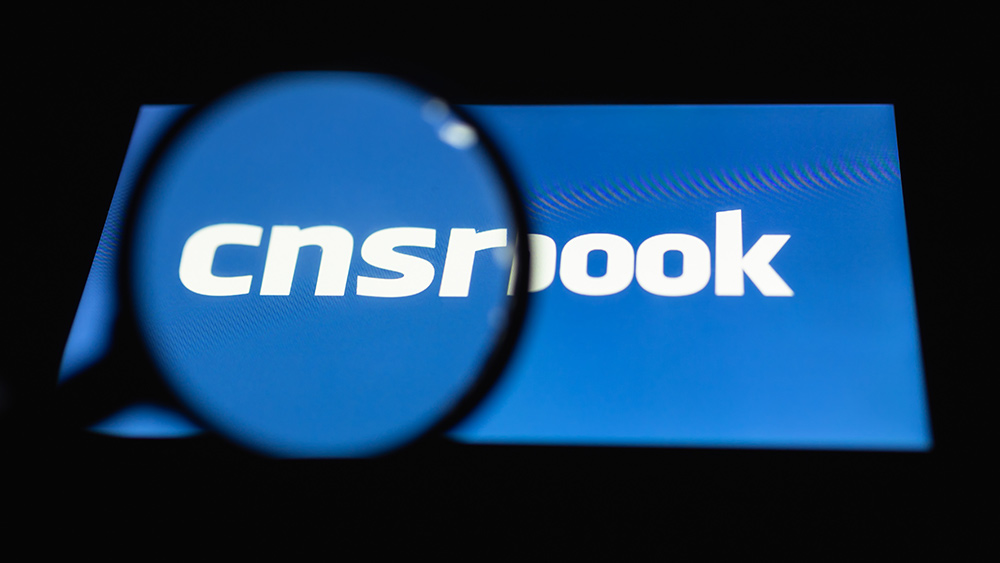Google ranks hoax perpetrator Wikipedia highly while suppressing conservative sites for being “fake news”
08/11/2020 / By Isabelle Z.

If you still use Google, you might have noticed that conservative sites don’t get a lot of love from the search engine. However, one site that does seem to show up on the first page of results for nearly every term imaginable is Wikipedia. It’s pretty ironic that Google claims the conservative sites they suppress are “fake news” when Wikipedia is known for being a big perpetrator of hoaxes and other false information.
In fact, there have been several major cases in which academic studies and media reports that took inaccurate information from Wikipedia were then used to support the claim within the Wikipedia entry in a type of circular sourcing known as citogenesis.
One of Wikipedia’s selling points is the fact that anyone can edit it, which is something its owners believe enhances its reliability. However, there are countless stories of Wikipedia printing hoax data that went on to become fake news in the media – sometimes even in medical journals.
Wikipedia hoaxes range from stupid inside jokes to outright character assassination
That’s what happened when someone edited an article on diabetic neuropathy in 2007, creating a fictional condition known as “glucojasinogen”. Although it was never a real condition, it then appeared in medical journals from Iran, India and Nigeria.
In another incident, a Wikipedia editor added fake information to the page of comedian Sacha Baron Cohen, who plays the character Borat, claiming that he once worked at the investment banking firm Goldman Sachs. Several news sources picked up this claim, such as The Independent, and although it had been removed in the meantime by someone using a Goldman Sachs IP address, the claim was then added right back into the article citing those sources as “proof”. After the hoax was exposed, it was removed once again, but it continues to appear in French Wikipedia.
On another occasion, a New York teenager added the alternate name of “Brazilian aardvark” to the Wikipedia entry for a raccoon-like animal known as a coati after mistaking the coati for an aardvark during a trip to Brazil. After an article in The New Yorker exposed the hoax, the claim was removed. By then, however, it had already appeared on several British news outlets like The Guardian, which was then cited on Wikipedia to support the alternative name, as well as a book published by the University of Chicago and a study published in the Brazilian scientific journal Iheringia.
Wikipedia’s sister site, WikiQuote, is not immune to the problem. In fact, it has spread several hoaxes by attributing quotes to people that they never said. For example, quotes were attributed to Rush Limbaugh praising the assassin of Martin Luther King, Jr. and saying that slavery had its merits. One was later revealed to have been adapted from an Adolf Hitler quote. Nevertheless, the quotes appeared in other places online and in a 2006 book, which was then used as a citation to restore the quote.
Some of the ways that people edit Wikipedia are stupid but relatively harmless, like calling a coati a Brazilian aardvark, but some are far more dangerous, like when journalist John Siegenthaler was falsely said to have been a suspect in the assassinations of both President John F. Kennedy and Attorney General Robert F. Kennedy.
There’s a good reason many news outlets don’t allow their writers and editors to use Wikipedia as a reference, and many schools and universities don’t allow it as a source, either. So why does Google, who claims to be so concerned about fake news, continue to rank this joke of a site so highly?
Sources for this article include:
Tagged Under: bias, Big Tech, citogenesis, deception, fake news, Google, hoax, information control, Leftist Agenda, Libtard, lies, Wikipedia
RECENT NEWS & ARTICLES
COPYRIGHT © 2017 TECHNOCRATS.NEWS
All content posted on this site is protected under Free Speech. Technocrats.news is not responsible for content written by contributing authors. The information on this site is provided for educational and entertainment purposes only. It is not intended as a substitute for professional advice of any kind. Technocrats.news assumes no responsibility for the use or misuse of this material. All trademarks, registered trademarks and service marks mentioned on this site are the property of their respective owners.


















